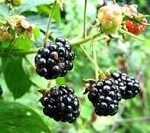A letter from John Newton to a friend, on prayer (August 15, 1776):
I sometimes think that the prayers of believers afford a stronger proof of a depraved nature than even the profaneness of those who know not the Lord. How strange is it, that when I have the fullest convictions that prayer is not only my duty — not only necessary as the appointed means of receiving these supplies, without which I can do nothing, but likewise the greatest honor and privilege to which I can be admitted in the present life — I should still find myself so unwilling to engage in it.
However, I think it is not prayer itself that I am weary of, but such prayers as mine. How can it be accounted prayer, when the heart is so little affected — when it is polluted with such a mixture of vile and vain imaginations — when I hardly know what I say myself — but I feel my mind collected one minute, the next, my thoughts are gone to the ends of the earth.
If what I express with my lips were written down, and the thoughts which at the same time are passing through my heart were likewise written between the lines, the whole taken together would be such an absurd and incoherent jumble — such a medley of inconsistency, that it might pass for the ravings of a lunatic.
When he points out to me the wildness of this jargon, and asks, is this a prayer fit to be presented to the holy heart-searching God? I am at a loss what to answer, till it is given to me to recollect that I am not under the law, but under grace — that my hope is to be placed, not in my own prayers, but in the righteousness and intercession of Jesus. The poorer and viler I am in myself, so much the more is the power and riches of his grace magnified in my behalf.
Therefore I must, and, the Lord being my helper, I will pray on, and admire his condescension and love, that he can and does take notice of such a creature — for the event shows, that those prayers which are even displeasing to myself, partial as I am in my own case, are acceptable to him, how else should they be answered?
And that I am still permitted to come to a throne of grace — still supported in my walk and in my work, and that mine enemies have not yet prevailed against me, and triumphed over me, affords a full proof that the Lord has heard and has accepted my poor prayers — yea, it is possible, that those very prayers of ours of which we are most ashamed, are the most pleasing to the Lord, and for that reason, because we are ashamed of them. When we are favored with what we call enlargement, we come away tolerably satisfied with ourselves, and think we have done well.
Every 1st Sunday of the month at 6pm—“We must, and, the Lord being our helper, we will pray on.”
I don’t know this poet—Seamus Heaney—, but his passing trends on twitter and his poems are on NPR. Plus he’s Irish, which is awesome. And this poem makes me think of a wonderful upcoming class Christ Community is offering. Details forthcoming.
“Blackberry Picking” can be found in Opened Ground: Selected Poems 1966-1996. Heaney, born in 1939, won the Nobel Prize in 1995. According to his Nobel biography, he grew up as a country boy on a farm in County Derry, northern Ireland.
Blackberry Picking
Late August, given heavy rain and sun
for a full week, the blackberries would ripen.
At first, just one, a glossy purple clot
among others, red, green, hard as a knot.
You ate that first one and its flesh was sweet
like thickened wine: summer’s blood was in it
leaving stains upon the tongue and lust for
picking. Then red ones inked up and that hunger
sent us out with milk-cans, pea-tins, jam-pots
where briars scratched and wet grass bleached our boots.
Round hayfields, cornfields and potato-drills
we trekked and picked until the cans were full,
until the tinkling bottom had been covered
with green ones, and on top big dark blobs burned
like a plate of eyes. Our hands were peppered
with thorn pricks, our palms sticky as Bluebeard’s.
We hoarded the fresh berries in the byre.
But when the bath was filled we found a fur,
A rat-grey fungus, glutting on our cache.
The juice was stinking too. Once off the bush
the fruit fermented, the sweet flesh would turn sour.
I always felt like crying. It wasn’t fair
that all the lovely canfuls smelt of rot.
Each year I hoped they’d keep, knew they would not.
“Blackberry-Picking,” from OPENED GROUND: SELECTED POEMS 1966 -1996 by Seamus Heaney.
Today when reading 1 Samuel 20 I wrote down these phrases that jumped off page to me:
verse 8 You have brought your servant into a covenant of the Lord with you.
verse 17 Jonathan made David swear again by his love for him, for he loved him as he loved his own soul.
verse 41 They kissed one another and wept with one another.
Verse 42The Lord shall be between me and you, and between my offspring and your offspring (which I’m 99% sure neither chap had yet), forever.
Then I looked to see which of the 4 passages in McCheyne (I’ll write something about this soon) was expounded upon by DON CARSON today. And, yeh baby, it was the one that was particularly riveting to me.
D.A. Carson: THERE ARE NOT MANY CHAPTERS in the Bible that devote much space to the theme of friendship, but 1 Samuel 20 is one of them.
Strictly speaking, of course, 1 Samuel 20 is not about friendship per se, in the way that friendship is a theme to be explored by a gifted novelist. The account fits into the larger narrative of the decline of Saul and the rise of David, a major turning point in redemptive history. Yet the way that account unfolds turns in important ways on the relationship between Jonathan and David.
Jonathan turns out to be a wholly admirable young man. Earlier he had shown considerable physical courage when he and his armor-bearer routed a contingent of Philistines (1 Sam. 14). When David became part of the royal court, one might have expected Jonathan to display many malevolent emotions: jealousy at David’s rising popularity, competitiveness in the military arena, even fear that David would one day usurp his right to the throne. But “Jonathan became one in spirit with David, and he loved him as himself” (1 Sam. 18:1). He entered into a “covenant” with David that made David, in effect, his own brother (1 Sam. 18:3–4)—an astonishing step for a royal to take with a commoner. By the time we arrive at chapter 20, Jonathan is aware that David will one day be king. How he acquired this knowledge we cannot be sure. Given their friendship, David may have confided in Jonathan the account of his anointing at the hands of Samuel.
Not only does Jonathan not share his father’s malevolence, but, having once before effected a reconciliation between his father Saul and David (1 Sam. 19:4–7), he finds it hard to believe that his father is as implacably determined to kill David as David believes (1 Sam. 20:1–3). So the elaborate plan of this chapter is put into effect. Jonathan discovers that his own father is resolved on Jonathan’s best friend’s death. Indeed, his father is so enraged that Jonathan himself is in mortal danger (1 Sam. 20:33).
David and Jonathan meet. They renew their covenant, as they will do once more (1 Sam. 23:17–18). David, for his part, vows to look after Jonathan’s family if and when Jonathan is no longer around—a harbinger of things to come, and rather different from the normal bloodletting that customarily took place when a new king sought to wipe out the potential heirs of a previous dynasty.
But perhaps the most striking thing is that Jonathan stays in town with his father. For the fact of the matter is that we choose our friends, but we do not choose our family; yet our responsibilities to our families take a prior claim. Otherwise friendship itself becomes an excuse for a new form of selfishness.
This just in from our Tuesday AM Women’s Bible Study team:
Our Tuesday Morning women will studying “Romans” by Jared Wilson. The book of Romans was Paul’s greatest literary achievement, a majestic letter in which the apostle explains crucial doctrines. We would love for you to join us!
The gospel has power. The power to save us. The power to change the world. In Paul’s letter to the Romans he explains to us the power we’ve been given to be effective witnesses, to overcome sin, to be wholly committed to God, to handle differences in Christ’s body, to understand God’s view of sexuality and to be responsible Christian citizens. The truth in Romans will transform your thinking and convict your heart as you discover the power of the gospel for every area of your life and our world.
When? Tuesdays at 9:00AM (Sept 3 – Dec 3)
Where? CCC on Parker Rd
How much? $10 (covers book)
Free childcare? Yes! Email us: pbemfrench@gmail.com
Please feel free to invite your friends. We long to know God through the study of his Word and hope you will “seek” Him with us this Fall. For more information and to register contact sstankunas@gmail.com.
In Jesus!
Lauren, Paige, and Sharon
About This Blog
This blog is one of the primary ways that Christ Community's staff can connect and share information. Look for important updates on our community life here each week.
Visit the CCC Website.
View our Church Calendar.
Subscribe via Email
Reminders & Reflections
Blog Archive
- June 2015
- May 2015
- April 2015
- March 2015
- February 2015
- January 2015
- December 2014
- November 2014
- October 2014
- September 2014
- August 2014
- July 2014
- June 2014
- May 2014
- April 2014
- March 2014
- February 2014
- January 2014
- December 2013
- November 2013
- October 2013
- September 2013
- August 2013
- July 2013
- June 2013
- May 2013
- April 2013
- March 2013
- February 2013
- January 2013
- December 2012
- November 2012
- October 2012
- September 2012
- August 2012
- July 2012
- June 2012
- May 2012
- April 2012
- March 2012
- February 2012
- January 2012
- December 2011
- November 2011
- October 2011
- September 2011
- August 2011
- July 2011
- June 2011
- May 2011


